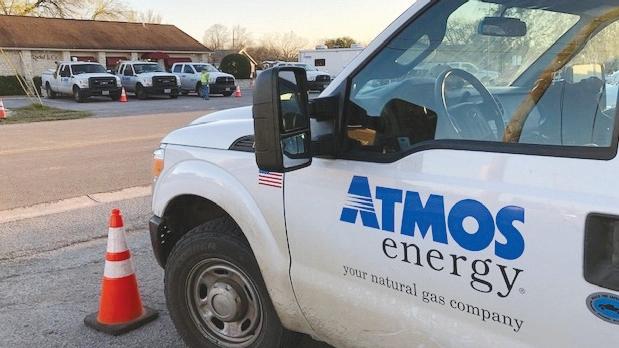
5 minute read
Drinking Coffee
China Grapples Massive COVID Wave ..
Experts have forecast China will eventually experience a million to 2 million deaths over 2023
China’s ongoing battle with a COVID surge has completely devastated the country’s healthcare infrastructure, especially in the Hebei province.
Hospitals in Baoding and Langfang have been forced to turn away ambulances and ill patients seeking treatment, while health administrators have been required to treat patients in over-capacity intensive care units on benches or the floor, officials said.
“I don’t have much hope,” said Yao Ruyan, whose elderly mother-inlaw requires urgent medical care as she contracted the coronavirus.
However, Yao has been unable to find a hospital with room to treat her, the Associated Press reported.
“They say there are no beds here,” she told AP reporters outside a fever clinic in China’s Hebei province.
Yao and her husband said they have been met with the same response at each hospital: there is no room for another patient.
After the family drove to Zhuozhou Hospital, which is an hour’s drive from Yao’s hometown, the response was the same. “I’m furious,” a tearful Yao added. “We’ve been out for a long time and I’m terrified because she’s having difficulty breathing.” And the problem exists for more than just Yao.
An ICU at Baoding No. 2 Hospital in Zhuozhou was so crowded that a medical worker instructed people wheeling in a patient from an arriving ambulance to seek care elsewhere.
“There’s no oxygen or electricity in this corridor!” the worker shouted, as the Associated Press reported. “If you can’t even give him oxygen, how can you save him?”
“If you don’t want any delays, turn around and get out quickly!” the worker added. The region’s crematoriums have echoed similar complaints.
At the Zhuozhou crematorium, furnaces are burning around the clock as workers struggle to keep up with a spike in deaths, an employee told the Associated Press.
A funeral shop worker estimated said they were burning 20 to 30 bodies a day, up from just three or four before the Chinese government dramatically loosened COVID-related restrictions on Dec. 7.
“There’s been so many people dying,” said Zhao Yongsheng, a funeral worker. “They work day and night, but they can’t burn them all.” Funeral homes in China’s capital were also packed, requiring some people to travel hours away to find someone available to cremate their deceased.
“They said we’d have to wait for 10 days,” a resident identified simply by the surname Liang said.
The Chinese government has reported only seven COVID-19 deaths since it loosened restrictions on Dec. 7, but absent a solution to provide quick and adequate care, China’s forecast in its battle with COVID looks grim.
China’s officially reported death toll for COVID since the global outbreak began in the final months of 2019, is a mere 5,241.
For context, the official death toll in the United States is over 1.1 million.
Modeling suggests large numbers of people will continue getting infected and dying throughout Beijing and the rest of China.
Experts have forecast China will eventually experience a million to 2 million deaths over the next year, and the World Health Organization has said Beijing’s way of counting COVID-caused deaths has allowed the country to “underestimate the true death toll.”
A Chinese health official said as recently as Tuesday that China only counts deaths from pneumonia or respiratory failure in its official COVID death toll, disregarding deaths that would be attributed to COVID BS counted by countries that use a broader definition. (Courtesy: https://www.foxnews. com/)
Drinking Coffee and Health
Coffee, generally considered a heart-healthy beverage when consumed in moderation, might be harmful for people with very high blood pressure.
Two or more cups of coffee a day was associated with a higher risk of death from heart problems in people with very high blood pressure, according to a study published on Wednesday in the Journal of the American Heart Association.
Compared to non-drinkers, people
who drank two or more cups of coffee were roughly twice as likely to die from heart problems in the study.
Though heavy coffee drinking was more risky for people with severe hypertension, or high blood pressure, the same trend did not occur in people with normal or slightly high blood pressure. The study’s authors were a group of Japanese researchers who analyzed the health data of 18,609 participants aged 40 to 79.
Green tea consumption in any amount did not have an impact on heart health, according to the study.
The study was the first to find a link between coffee drinking and death from heart disease in people with very high blood pressure, the study’s main author Hiroyasu Iso told the American Heart Association.
Blood pressure is measured by the pressure in your arteries both when your heart beats (systolic blood pressure) and when your heart is at rest (diastolic blood pressure). High blood pressure occurs when your systolic blood pressure is at least 130 millimeters of mercury (mm Hg) over a diastolic blood pressure of at least 80 mm Hg.
Study authors defined “very high” blood pressure as at least 160 mm Hg over at least 100 mm Hg.
“These findings may support the assertion that people with severe high blood pressure should avoid drinking excessive coffee,” Iso said in an AHA release.
The AHA does not have an official recommendation on how much coffee to drink, the group has said one to two cups per day “doesn’t seem to be harmful” on its website.
Previous research has shown moderate caffeine consumption — around one to three mugs a day — might benefit heart health.
A paper from last year that looked at three studies, including one that followed 21,000 adults over at least 10 years, found drinking two cups of coffee per day could lower the risk of heart failure by 30%. Prior research also found having around three cups of joe a day could lower the risk of heart disease, Insider’s Sara Lindberg reported.
Coffee drinking has even been seen to stave off early death, as a large paper from earlier this year that analyzed the health of 171,000 UK residents found regular drinkers of unsweetened coffee were 16 to 21% less likely to die than their java-less peers.
But newer studies have shed light on the potentially negative effects of coffee. A recent paper in the Journal of the American Medical Association found drinking coffee while pregnant could impact the child’s height when they grow up. (Courtesy: https://www.insider. com/)










